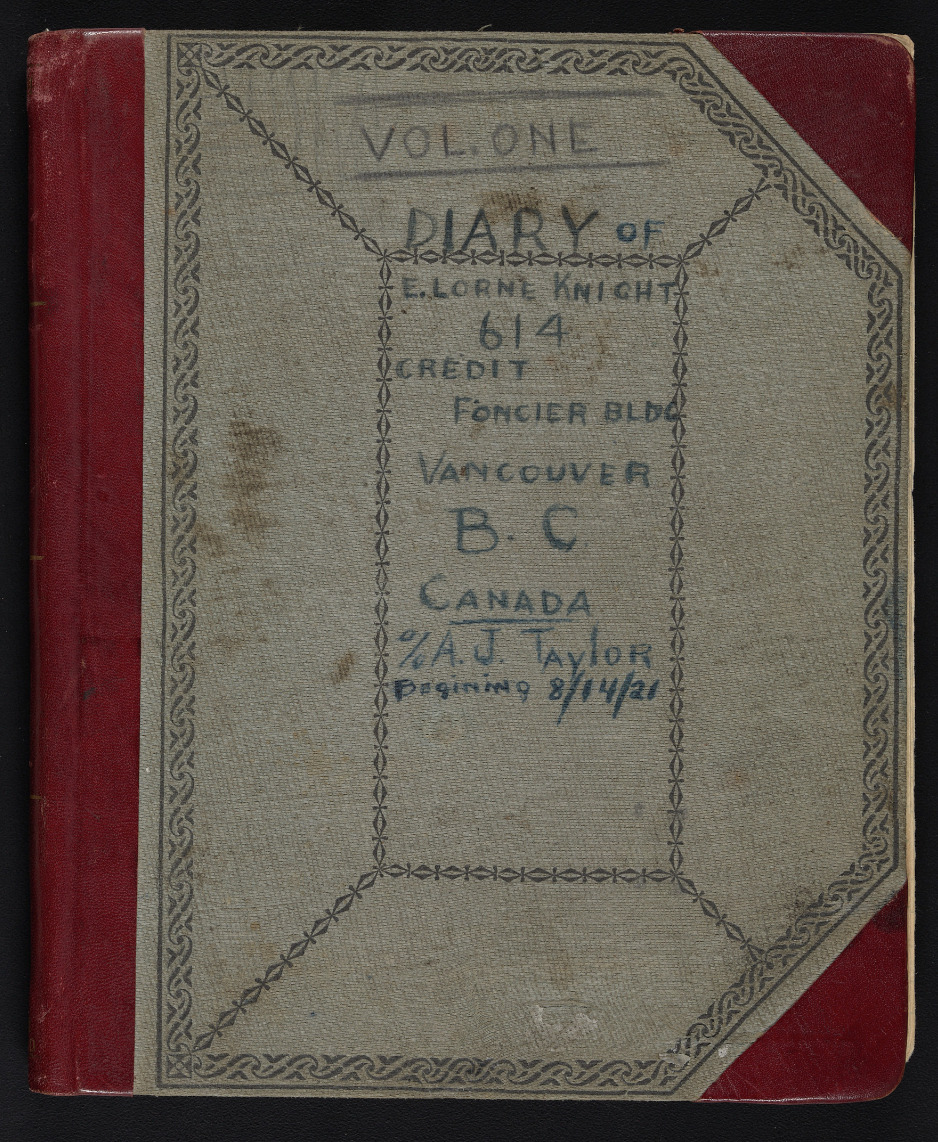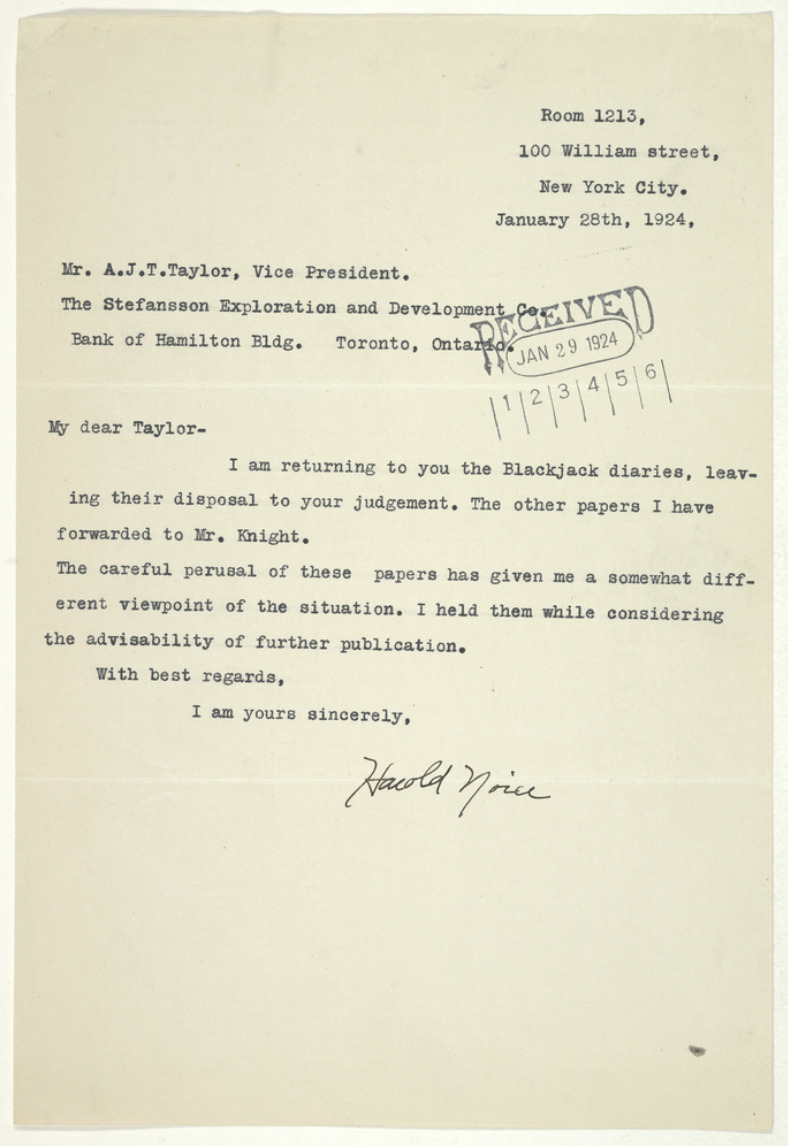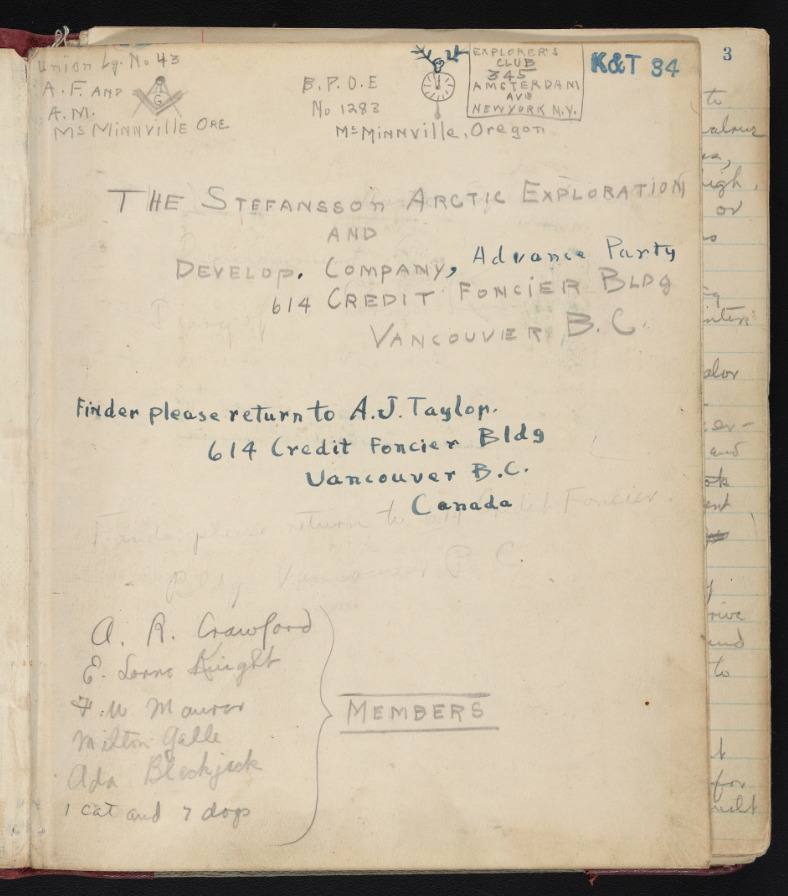Taylor and the Ada Blackjack & Lorne Knight Diaries
As the Vice President of The Stefansson Exploration and Development Co, one of Alfred Taylor’s most significant tasks was managing the public image of this expedition, namely through the handling of important historical documents like the Lorne Knight diary and Ada Blackjack diary.
Following the expedition and its recovery mission, Harold Noice, the sailor who rescued Blackjack from the island in 1923, sent Blackjack’s diary to Alfred Taylor; accompanying the diary was a letter dated January 28th, 1924. This letter warns Taylor that the contents of Blackjack’s diary are somewhat unexpected as “the careful perusal of these papers has given [Noice] a somewhat different viewpoint of the situation.” While he does not explicitly mention what specifically sparked this hesitancy, a review through this diary reveals the cruel treatment of Ada by the other four men that was rooted in White, colonist ideals. Upon reading (presumably) these unexpected remarks, Noice turned to Alfred Taylor, the backbone figure and instigator of the expedition, “leaving [the diary’s] disposal to [his] judgement” on the “advisability of further publication.”
In a similar vein, Taylor also handled the Lorne Knight diary. Written on both the cover and the first page of Knight’s diary is A.J. Taylor’s name and the phrase “Finder please return to A.J. Taylor,” respectively.
Through examining Harold Noice’s letter and the Lorne Knight diary, we can ascertain that beyond his official title as the vice president of the company organizing the expedition, Taylor also took on the role of a document manager and a publicist for the Wrangel Island expedition. Those in the expedition viewed him as an essential resource for the preservation of these documents, and the presentation of the expedition narrative to the public. Many view these two diaries as a means to understand the events as they unfolded on Wrangel Island, and none of this information could have been accessible without the continued, unseen efforts by Alfred Taylor.



